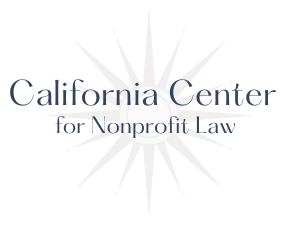
“Solicitation” and Charitable Registration Laws
Most states now have laws that govern charitable fundraising within their borders. However, these laws differ considerably from one state to the next, even when it comes to defining “charitable solicitation” for charitable registration statutes.
In most jurisdictions, charitable solicitation encompasses more than just asking for donations in person. Phone calls, direct mail, email campaigns, social media appeals, crowdfunding, event fundraising, and even certain sales promotions that benefit a nonprofit can all qualify as solicitations. Many states also regulate indirect requests, such as cause‑marketing partnerships or online donation buttons.
Understanding what counts as a solicitation is critical for nonprofit organizations operating in multiple states, because it determines when registration or reporting is required, what disclosures must be made, and how to avoid penalties for noncompliance.
Solicitation Under California Law
According to the Charitable Trusts Section of the California Department of Justice, solicitation for charitable registration encompasses both direct and indirect types of charitable fundraising, including the following:
- Telephone solicitations
- Mail solicitations
- Online solicitations, including through charitable fundraising platforms
- In-person requests for donations, including at events
- Ticket sales for or at events, such as annual dinners, auctions, bingo, and raffles
- Newspaper and magazine advertisements
- Use of collection bins
- Vehicle donation programs
- Sales of products
California law also distinguishes between charitable organizations conducting fundraising efforts using staff members and doing so using fundraising professionals. Registration and other legal requirements differ according to which entity is engaging in fundraising.
Other State Definitions of Solicitation
For comparison purposes, let’s look at some other states’ definitions of solicitation for their charitable registration laws. For example, Fla. Stat. 496.404(24) is very expansive and specific. It defines solicitation as follows:
“Solicitation” means a request, directly or indirectly, for money, property, financial assistance, or any other thing of value on the plea or representation that such money, property, financial assistance, or other thing of value or a portion of it will be used for a charitable or sponsor purpose or will benefit a charitable organization or sponsor. The term includes, but is not limited to, the following methods of requesting or securing the promise, pledge, or grant of money, property, financial assistance, or any other thing of value:
(a) Making any oral or written request;
(b) Making any announcement to the press, on radio or television, by telephone or telegraph, or by any other communication device concerning an appeal or campaign by or for any charitable organization or sponsor or for any charitable or sponsor purpose;
(c) Distributing, circulating, posting, or publishing any handbill, written advertisement, or other publication that directly or by implication seeks to obtain any contribution; or
(d) Selling or offering or attempting to sell any advertisement, advertising space, book, card, coupon, chance, device, magazine, membership, merchandise, subscription, sponsorship, flower, admission, ticket, food, or other service or tangible good, item, or thing of value, or any right of any description in connection with which any appeal is made for any charitable organization or sponsor or charitable or sponsor purpose, or when the name of any charitable organization or sponsor is used or referred to in any such appeal as an inducement or reason for making the sale or when, in connection with the sale or offer or attempt to sell, any statement is made that all or part of the proceeds from the sale will be used for any charitable or sponsor purpose or will benefit any charitable organization or sponsor.
Another example of a definition of solicitation for charitable registration is found at KRS 367.50(4). Kentucky’s definition of solicit and solicitation states as follows:
… to engage in, and the act of, requesting, directly or indirectly, that an addressed person or a limited audience or the public generally make a contribution. Solicitation shall be deemed to have taken place when the request is made, whether or not the requested contribution is made.
Finally, although Illinois has a charitable registration statute, it doesn’t provide a statutory definition of “solicitation,” just referring to all “soliciting” and “fundraising” in general.
Frequently Asked Questions (FAQ)
What does “solicitation” mean in the context of charitable registration laws?
In most states, “solicitation” means any request—direct or indirect—for a donation or other support for a charitable purpose. Therefore, solicitation can include in-person asks, phone calls, letters, emails, social media posts, crowdfunding campaigns, event appeals, or even sales promotions where a portion of the proceeds benefits a nonprofit. The definition is intentionally broad so that most fundraising activities fall under state oversight.
Do online fundraising activities count as solicitation?
Yes—in many states, online appeals can trigger registration requirements if they are accessible to or specifically target residents of that state. Online appeals may include donation buttons on your website, crowdfunding pages, email campaigns, and social media posts. Some states follow the “Charleston Principles,” which outline when internet solicitations require registration, but rules vary. If your nonprofit fundraises online, you may need to register in multiple states.
Are there activities that don’t count as solicitation?
Yes, but exemptions vary by state. Common examples include:
- Grant applications to government agencies or certain private foundations.
- Membership renewals that only offer benefits of nominal value.
- Internal appeals to existing members, staff, or board. However, these exceptions are not universal—what’s exempt in one state may require registration in another. Always check the specific laws in each state where you fundraise.
Guiding Your Charitable Organization Through Every Legal Challenge
In today’s shifting legal environment, even a small oversight can put your charitable organization at risk. The California Center for Nonprofit Law is here to help you stay compliant, avoid costly mistakes, and keep your mission moving forward. Call (949) 892‑1221, email info@NPOlawyers.com, or reach out online to get the legal insight your organization needs now.
